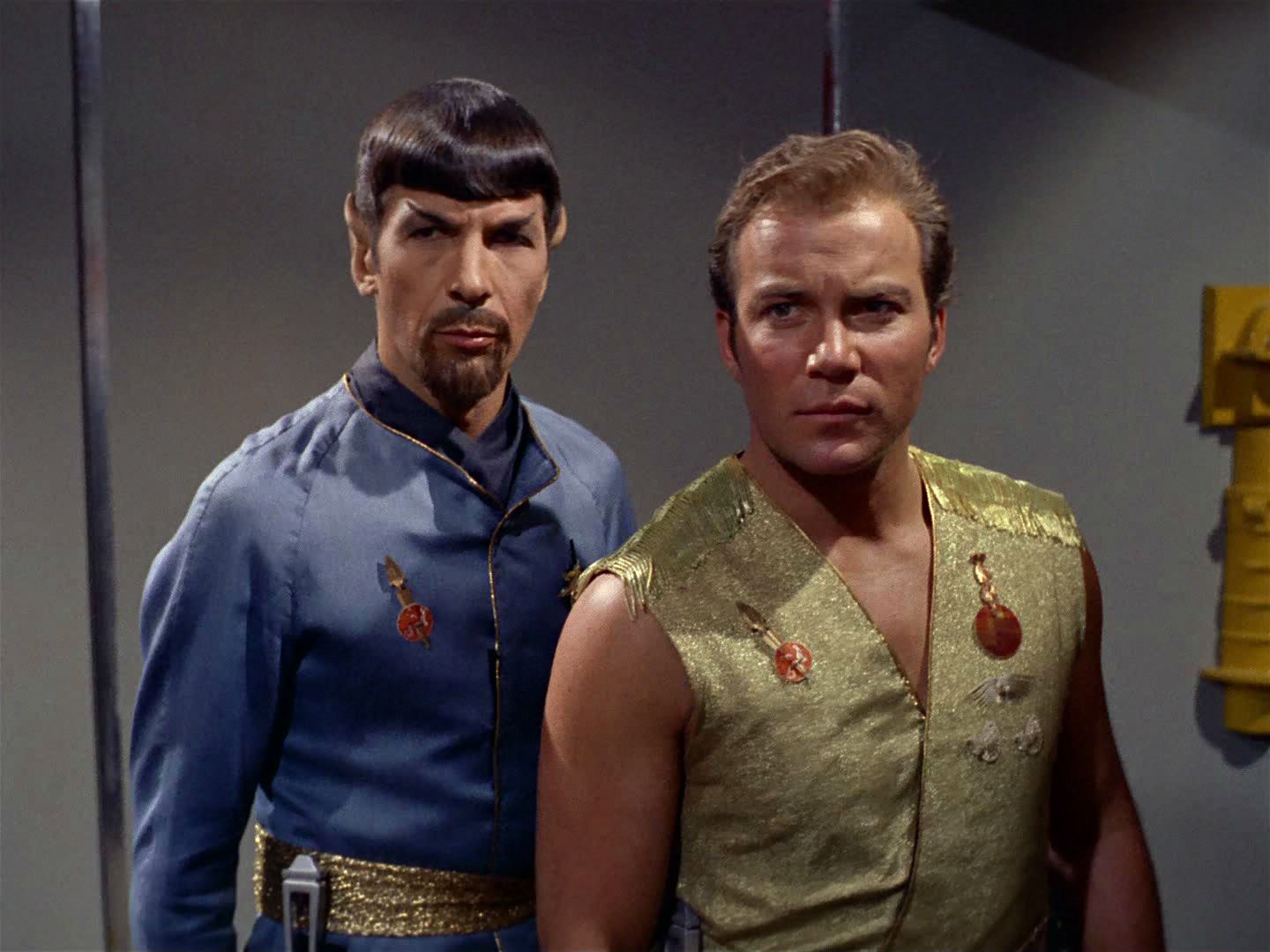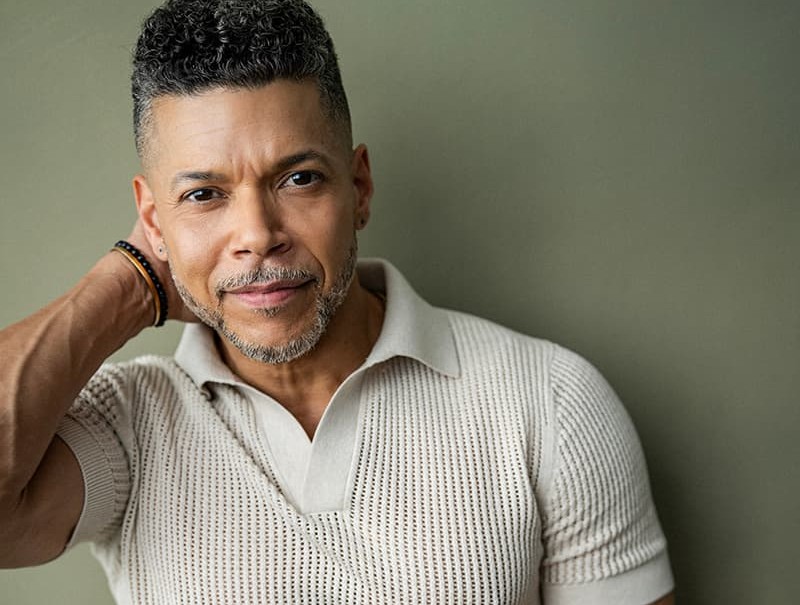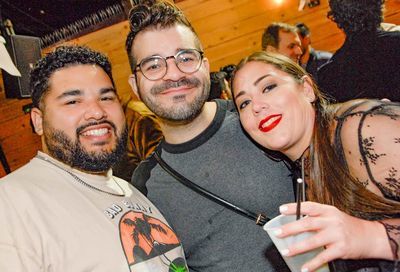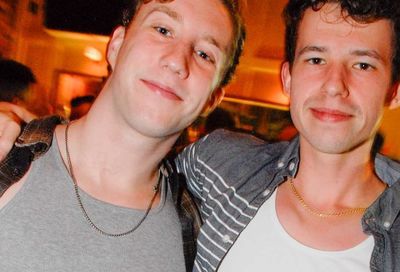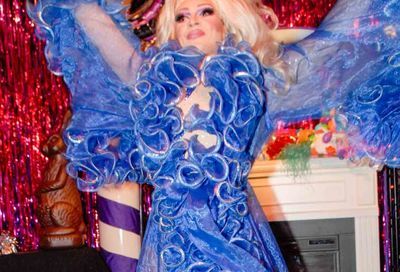The Takei Time
Star Trek put him on the map. Facebook launched him to superstardom. And a musical called Allegiance is earning him raves. What's next for George Takei? Only time will tell.
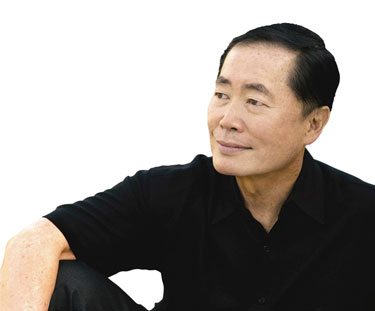
George Takei
MW: Let’s talk about your time in the internment camps. How did that experience help to form who you are?
TAKEI: Well, I was 5 years old when we were rounded up, and 8 when I came out of the camp, so those were very formative years. But I really didn’t understand that experience. You know, a child is amazingly adaptable.
I remember the barbed wire fence and the sentry towers with the machine guns pointed at us, and the searchlight that followed me when I made the midnight runs from our barrack to the latrine. But that became part of the routine of life in the internment camp. Everybody I knew lived the same way. In fact, as a child I thought it was nice that they lit the way for me to the latrine at night. To my parents — to the adults — it was very intimidating, but for me, from a child’s innocent perspective, it was the way I went to pee. And they lit the way for me.
So it wasn’t until I came out of the camp and realized that other kids didn’t have that same kind of childhood. And I discovered from my parents that it was something like a prison camp — and only bad people went to prison. So I was ashamed of that part of my childhood. As a teenager when I started reading history books and civics books, I thought my childhood was not what the civics books say America stands for. And so, I had very intense after-dinner conversations with my father.
My father was an unusual man. Many Japanese-Americans of my parents’ generation didn’t like to talk about it because they felt ashamed by it. But my father wanted me to understand our experience, and so he went into detail about our incarceration and after many, many discussions over the years, I remember his summary of it saying, ”Both the strength and the weakness of American democracy is in the fact that it’s a peoples’ democracy and it can be as great as a people can be, but it can also be as fallible as people are, and that’s why good people have to be actively engaged in the process, to literally hold democracy’s feet to the fire, to make it do the right thing.”
I realized later on that my father was guiding all his children into being part of the political process. Before I could even vote, he took me to the Adlai Stevenson for President headquarters. He was a great admirer of Gov. Stevenson’s, and he volunteered me for the campaign. I enjoyed it. So he was the one that made me aware of the importance of our being active participants in the political process as volunteers, certainly as informed voters.
MW: Your father sounds remarkable.
TAKEI: He was an extraordinary man. He was strong. He knew how to create opportunities. He had a good sense of timing. I’m sure he would have been enormously successful had it not been for the disruption of the internment. He became very successful in real estate starting in the mid-1950s.
He was fluent in both Japanese and English and in the camps was able to communicate with the older generation as well as the younger generation. He was elected block manager, sort of like the representative of the block, in both the Arkansas camp and later at the camp we were transferred to in Northern California. The Arkansas camp was called ”Rohwer” and the Northern California camp was called ”Camp Tule Lake,” a lovely name for an ugly place. It was a dry lakebed, more like a desert, but the sand was gritty and sharp and hard rather than soft and sandy.
MW: Which brings us to Allegiance, your musical about life in the camps. It’s obviously a very important project to you.
TAKEI: It’s my legacy project. This is what I want my legacy to be. It’s the story I’ve been telling for decades now. I’m always taken aback when people who seem to be otherwise well-informed say to me that they had no idea something like that — the internment — happened in the United States. I think it’s especially important for informed, educated people to know about the dark chapters of our democracy — chapters where democracy stumbled — because you learn more from them than from the glorious chapters.
From way back, I’ve been going on speaking tours to universities as well as corporations and government agencies, particularly in May, which has been designated Asian-American Heritage Month. But I have found that at those speaking engagements, people are already informed. I’m singing to the choir. I needed to reach a larger — and unwashed, if you will — audience.
It’s particularly important because it didn’t happen just to Japanese-Americans — it happened to our United States Constitution. It was egregiously violated because we have, in this country, a core, the pillar of our justice system, which is called due process. When you’re arrested, you have the right to know what the charges are and then you have a right to challenge those charges in a court of law. In our case, there were no charges, no trial, we were just summarily rounded up because we happened to look like the people who bombed Pearl Harbor. It was a racist, unconstitutional act on the part of a hysterical nation.
MW: It may very well be the very first instance of profiling in this country.
TAKEI: It was, it was. I mean, we were Americans. My mother was born in Sacramento. My father was born in Japan, but he was brought to San Francisco as a 9-year-old. And I was born in Los Angeles. My grandparents were of the generation that came to the United States. We were Americans.
MW: The musical has been a great success so far.
TAKEI: The first reading of it was held at the Japanese American National Museum. That would be the toughest audience composed of curators, docents, staffers at the museum. When the play ended there wasn’t a dry eye there and we knew we were on the right track. There have since been about a half-dozen different iterations of that same play, before we got to the production at the Old Globe in San Diego. And there in San Diego, after the first performance, there was a spontaneous immediate standing ovation and we had a good sense that we were hitting the right notes. Then the reviews came out a few days later — unanimous raves. We closed in early November, and we discovered that we broke all box-office records in the distinguished 77-year history of the Old Globe. So we hold the box-office record — as well as the attendance records — of the Old Globe Theater.
MW: Is there a Broadway run in its future?
TAKEI: We are transferring to Broadway next fall.
MW: Do you know which theater yet?
TAKEI: No, not yet, because we don’t know what’s going to be available then, and we want the right size theater. We don’t want something as small as the Helen Hayes or anything as big as The Marquee. We want something around 13-hundred seats.
MW: What will you do if Allegiance wins a Tony?
TAKEI: [Laughs.] We’ll pop a bottle of Champagne. Maybe many bottles.
MW: Let’s move to Facebook, where you are an undeniable superstar. There’s just no other way to put that. When I told a friend I was speaking to you, he emailed me, ”Tell him how awesome he is.”
TAKEI: Isn’t that something? On Facebook I have 3.1 million friends, and it’s an amazing thing. The memes we share are memes that people have sent us. They give us the material and I comment on it and post it and from there it goes viral.
But it’s going to become a challenge. Everything in life changes — there is nothing more constant than change — and Facebook has now become publicly owned and they have stockholders to answer to and have to generate revenue. So we’re discovering that they are trying to find ways to make money. We discovered that some people weren’t getting our postings. We wondered why that was. What we discovered was that Facebook has developed this thing called ”edge ranking,” where the followers who respond most often are the ones get my postings. If there isn’t much response from the others, they don’t get all the postings. But if you want them to get the postings, then you have to pay to reach them.
We don’t want to pay for something that we weren’t paying for. So we’re trying to stimulate ways of getting people to respond — not just in terms of likes, but in other ways. So the challenge is figuring out how to play this game — and that’s getting to be fun.
Support Metro Weekly’s Journalism
These are challenging times for news organizations. And yet it’s crucial we stay active and provide vital resources and information to both our local readers and the world. So won’t you please take a moment and consider supporting Metro Weekly with a membership? For as little as $5 a month, you can help ensure Metro Weekly magazine and MetroWeekly.com remain free, viable resources as we provide the best, most diverse, culturally-resonant LGBTQ coverage in both the D.C. region and around the world. Memberships come with exclusive perks and discounts, your own personal digital delivery of each week’s magazine (and an archive), access to our Member's Lounge when it launches this fall, and exclusive members-only items like Metro Weekly Membership Mugs and Tote Bags! Check out all our membership levels here and please join us today!




